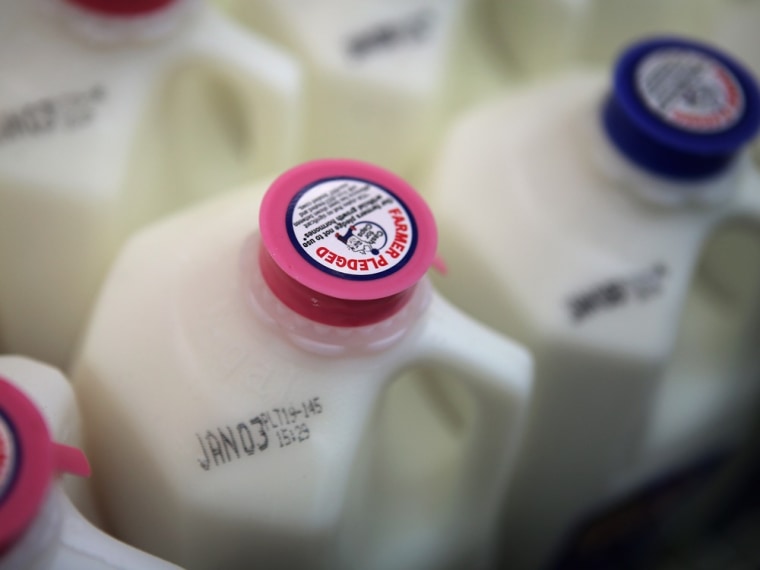Brace yourself: the U.S. is about to go over the "dairy cliff," which could cause milk prices to jump.
If Congress is not able to pass a new farm bill before the 2008 farm bill expires at the end of the year, a decades-old law will kick in. As part of this permanent legislation from 1949, the government would then buy dairy products from producers at about twice the current market rate.
"It could take a period of weeks or a month or two for there to be a trickle-down effect at the retail level," said Chris Galen, senior vice president of communications at the National Milk Producers Federation, a group of 30 dairy cooperatives. "What happens under this permanent law, the USDA is required to basically support a much higher price to dairy farmers."
Possible impact of an expiration
Once this price increase gets passed down to shoppers, Galen said milk prices could jump as much as "$2 or $3 a gallon," possibly even as high as $7 to $8 a gallon in pricier markets. The national average for a gallon of milk in October stood at about $3.46, according to data from the Bureau of Labor Statistics.
If the farm bill expires, "domestic demand for dairy products would fall by an estimated 9 percent, and exports, which have seen much growth over the past decade, would likely disappear as the cost of U.S. dairy products would become prohibitively expensive," the Executive Office of the President predicted in a recent report.
Related:Grandparents, have you changed how spend money on your grandkids?
In order to support these higher prices, the government would have to buy and store large quantities of dairy, which would cost the federal government "at least $12 billion per year," the report forecast.
So what's causing this dairy impasse?
"This is the second time we've been down this road. The same thing happened last year," Galen said. "It's because of gridlock on Capitol Hill. It's very similar to the showdown and shutdown we had in October."
Still, he thinks it's unlikely consumers will see the return of the earlier permanent law. It's more likely that Congress will pass either a short-term extension of the bill until early 2014 when they'll hammer out a new bill or another 12-month extension or possibly even 24 months, Galen added.
A big question mark
Bruce Stone, owner of Stone Dairy in Henning, Minn., and a member of the Minnesota Milk Producers Association, said it's hard to say how it would affect his business if D.C. wrangling leads the U.S. to go over the dairy cliff.
"We don't know what's going to happen. There's a lot of uncertainty," said Stone, who milks about 450 cows and sells dairy products primarily to Land O' Lakes.
Higher feed costs due to the bill's expiration would erase Stone's margins, he added.
"The dairy industry's been tough going for the last few years," he said. "There's not much profit in it. Costs are high. Prices aren't high enough to cover it."
—By CNBC's Katie Little. Follow her on Twitter @KatieLittle
Related stories:
Much breast milk bought online is contaminated
